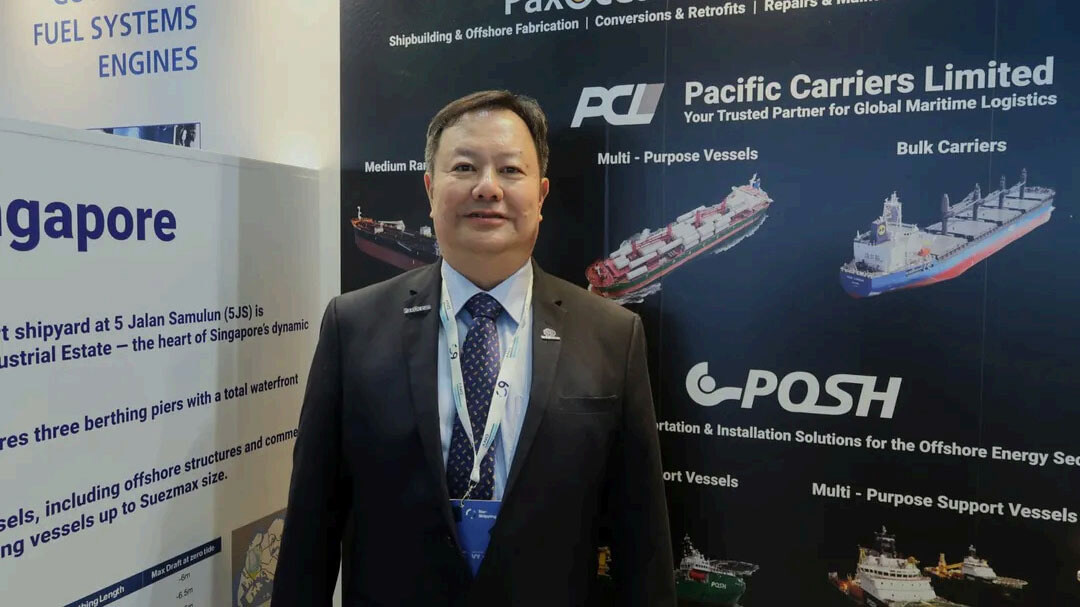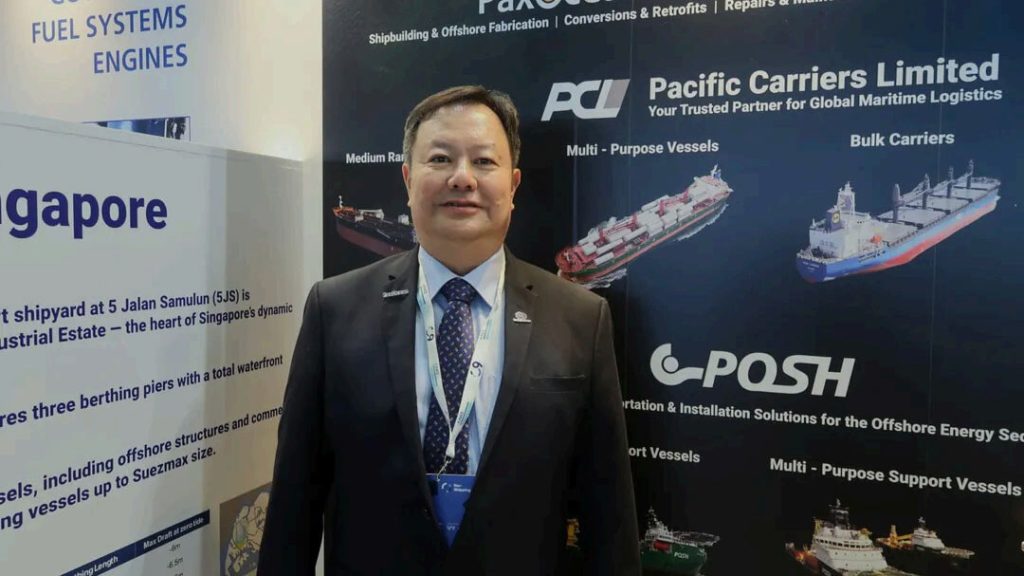
With shipyards in China, Indonesia and Singapore, PaxOecan reaps the benefits of the market according, explains chief executive Tan Thai Yong.

TOMAS KRISTIANSEN AND DANIELA DE LORENZO
25 JULY 2025 AT 14:00
SINGAPORE/OSLO/COPENHAGEN
While shipping companies are rushing to sign newbuild contracts, yards are
bolstering their order books and slots are sold out years into the future.
A market trend that is also benefitting PaxOcean, part of Kuok Maritime Group (KMC), with shipbuilding facilities in China, Indonesia and Singapore.
Tan Thai Yong, CEO, PaxOcean
"Currently, there is a very strong interest in newbuildings. We are almost up to 2028," says PaxOcean chiex executive Tan Thai Yong in an interview with Shipping Watch.
The family-owned Kuok conglomerate spanning real estate, luxury hotel brands like Shangri-La, IT and shipping, is, among other things, known for its discretion.
However, the chief execs of all three maritime units within Kuok Maritime Group (KMG) - Pacific Carriers Limited (PCL) for tanker and bulk carrier, PaxOcean for shipbuilding, and PACC Offshore Services Holdings (POSH) for offshore services, have agreed to discuss their respective businesses and the current market conditions with Shipping Watch.
Right now, Asia's shipbuilding industry is enjoying golden days as the yards are packed and cannot deliver the newbuildings ordered until years from now.
Available slots are continuously being pushed towards 2030, and with the expected order boom to satisfy the need for green vessels, the sold-out status at the yards is not expected to go down any time soon. This means prices are set to remain high.
"The shipyard business in the group fully supports the IMO convention about decarbonization. To us, it's also business. We are looking at alternative fuels, developing retrofit packages for ship owners. We have conversions of ships to sail on methanol, install rotor-sails using the wind energy, retrofits and all these underwater appendages to improve the efficiency of vessels including propeller and bow," the Tan Thai Yong explains.
With five shipyards, the company recently bagged contracts for the construction of two offshore construction vessels with a European shipowner expected to be delivered in 2027. In December 2024, a significant order for a cable layer vessel was signed with Penta-Ocean Construction already set to work in Japan's offshore wind energy industry.
Earlier, PaxOcean has delivered a wind turbine installation vessel, also for the Japanese offshore sector. And among the complex constructions, PaxOcean converted an FSO (Floating Storage and Offloading vessel) to an FPSO (Floating Production Storage and Offloading vessel) for Indonesia. Recently, an owner signed an order for a 1000 teu container vessel.
As part of the Kuok Maritime Group, the shipyard regularly collaborates with its sister companies PCL and POSH, either to share knowledge or as part of shipbuilding projects to be delivered to the two sister companies.
"We started off designing the first vessel for PCL, a 40,000 dwt multi-purpose vessel, based on the operational input from PCL to improve the design. Within the group, we have the operational experience and we have the shipbuilding experience. So just an example: When our engineering team proposed to push shaft generator on the vessel, we debated this internally. We improved the efficiency of the vessel and PCL took up the offer for the vessel," the CEO says.
Tan Thai Yong, CEO, PaxOcean
Externally, PaxOcean became a founding member of the Coastal Sustainability Alliance established in March 2022. Among other things, the aim is to get its share of the booming market for electric and zero-emissions supply vessels working in the ports. A key port like Singapore is driving the development, setting clear targets and requirements for auxiliary vessels to decarbonize.
"We designed our own electric vessel and did a lot of hull optimization. For example, when we started, it was 23 meters. After a lot of model tests, we realized that 26 meters will give us better efficiency. So, we design, and we look at efficiency of battery consumption," Tan Thai Yong explains.
There is still room to construct smaller vessels, but slot availability for bigger ships is tight
"We have just signed a deal for another four tankers last week. So our big ship order book is up to end 2028, but I do have some windows or slots for smaller ships, could be OSVS or smaller vessels. So, we still got slots. But the problem for conventional ship today is the availability of the engines," he says.